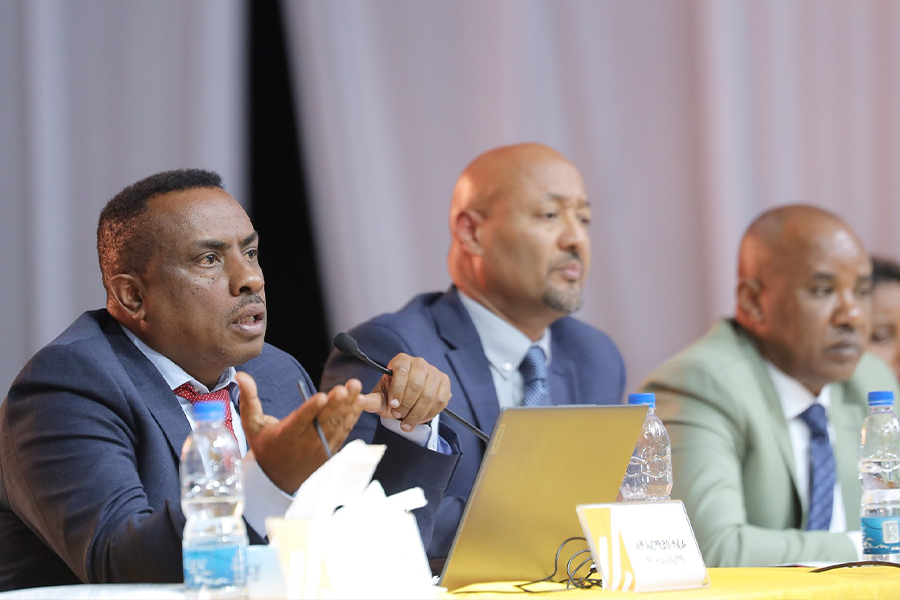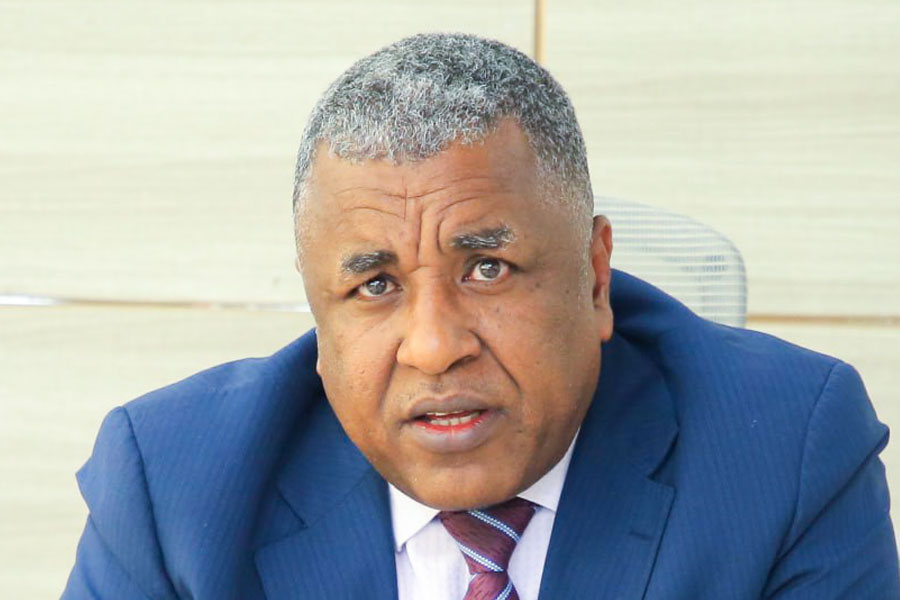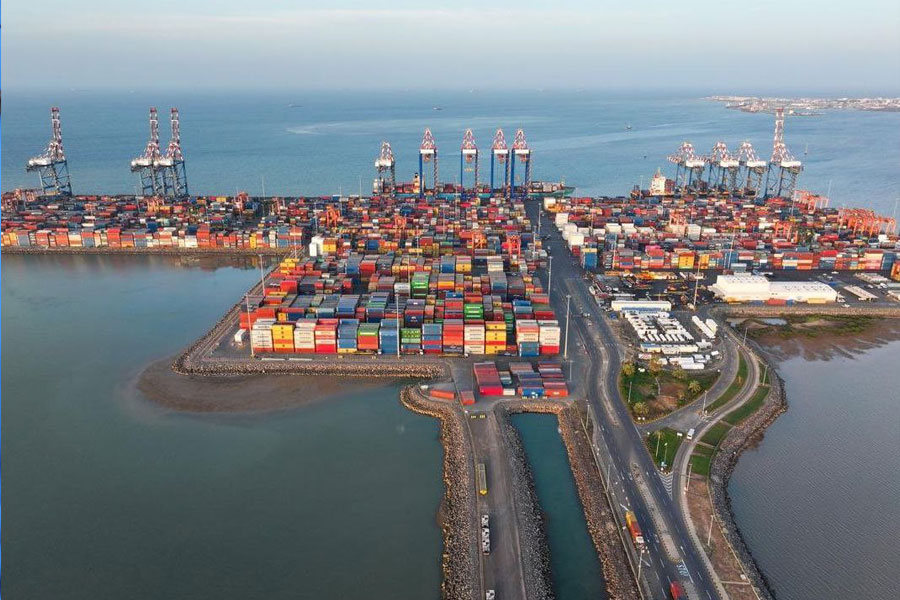
Mayor Adanech Abebie’s Administration faced an audit report that unveiled a startling picture of financial mismanagement, inefficiencies, and potential corruption, raising concerns about the Addis Abeba City Administration's fiscal and financial integrity.
The Addis Abeba City Auditor General findings, tabled to the city’s councillors last week, uncovered severe flaws, including 41.34 million Br spent without supporting documents across 31 institutions. The city’s Design & Construction Bureau alone accounted for 18.76 million Br of these undocumented expenditures, followed by the Executive Office with 2.65 million Br and the Public Service & Human Resource Development Bureau with 2.38 million Br.
Last year, Addis Abeba residents paid hundreds of billions of Birr in taxes, covering 96pc of the city’s target. However, the audit revealed a failure to collect over 33.92 million Br in taxes, with an additional 3.51 billion Br in arrears predating the 2022 fiscal year. The fiscal year saw Addis Abeba generate a total revenue of 108.04 billion Br, surpassing the budgeted figure by 1.8pc, or approximately 1.95 billion Br.
However, beneath this surface success lies a series of inefficiencies and missed opportunities. Discrepancies in financial records, particularly with uncollected amounts totalling 167.75 million Br in 49 institutions, were uncovered in financial reporting and record-keeping. Irregular and unauthorised payments are another alarming discovery. The audit found numerous cases where funds were redirected or inadequately documented, especially in critical sectors like education.
Addis Abeba used 90.6pc of its allocated budget, spending 102.89 billion Br out of the budgeted 113.59 billion Br. While this high execution rate indicates a generally efficient use of resources, the underutilisation of 13.6pc of the capital budget was particularly concerning.
Only 58.71 billion Br was spent on capital projects out of the allocated 67.98 billion Br, revealing delays and inefficiencies in project implementation. The audit findings uncovered cases where projects were stalled or not initiated due to bureaucratic problems and logistical constraints.
Operational inefficiencies in public transportation further exacerbate the city's limitations.
Of 1,517 public buses, 327 were out of service due to maintenance issues, leaving over 21pc of the fleet non-operational. The inefficiency disrupts public transportation, affecting thousands of commuters daily and leading to potential revenue losses. The audit report blamed poor management and inadequate resource allocation for regular maintenance, which could have far-reaching effects on the city's economic productivity and residents' quality of life.
Violations of procurement regulations, amounting to 67.16 million Br, exposed the city administration to risks of corruption, inflated costs, and substandard services. According to the report, unpaid and unaccounted liabilities amounting to 242.08 million Br across 54 institutions further revealed severe lapses in financial oversight.
The audit report offered several recommendations targeting identified shortcomings and improving the overall efficiency and transparency of the city’s financial management. Key among these recommendations is the need to enhance the city’s financial management systems, particularly in areas of documentation and internal controls.
It urged the importance of improving the efficiency of capital project execution, streamlining bureaucratic processes, improving coordination among various departments, and ensuring timely allocation and disbursement of funds.
Concerns were raised about financial accountability. Council member Abawey Yohannes warned of a repeat of the downbeat audit findings from the previous year to ensure equitable budget use.
Mayor Adanech advocated for stricter oversight throughout the fiscal year. She proposed that the City Council and the Auditor General tighten the noose on her administration, suggesting regular oversight to allow potential course corrections throughout the year.
The City Council concluded its assembly last week, after unanimously approving a budget of 230.39 billion Br for the fiscal year 2024/25. Nearly two-thirds (64pc) will be directed towards capital expenditures, prioritising infrastructure projects like developing five major corridors spanning 1.4hct. It contrasts with the recently approved federal budget, which prioritises recurrent spending.
Beyond the corridor development projects, the budget also allocated funds for public housing construction and job creation initiatives, disclosed Abdulkadir Redwan, head of the City Finance Bureau.
Addis Abeba, as the diplomatic capital of Africa and the seat of the federal government, has faced the dual challenges of managing its economic centrality and the pressures of urban migration. Its budgetary allocations in the seven years beginning in 2010 jumped nearly sevenfold, from 33.45 billion Br in 2010. This dramatic rise, Mayor Adanech believes, shows a substantial commitment to urban development, infrastructure expansion, and service improvement in the capital city. It reveals a phase of accelerated investment driven by ambitious city-wide projects, infrastructure upgrades, and efforts to cope with rapid urbanisation.
The Administration's focus during these years included expanding roads, enhancing public transport systems, upgrading utilities, and maintaining social services. However, the incremental budget increases from 2018 to 2022, though steady, were relatively modest compared to the leaps seen post-2023. The pattern reveals a potential shift in the Administration's policy response to infrastructural deficits.
Addis Abeba’s budget is similar to the city's past spending patterns, averaging around 233 billion Br over the last three years. With a recurrent budget set at 74.5 billion Br and 9.4 billion Br set for contingency for the current fiscal year, the City Administration hoped to collect the entire budget from taxes and land lease revenues, as the capital is not a beneficiary of state subsidies from the federal government.
The Council raised a pressing issue over revenue collection and resource allocation. Jara Sema, a counselor, raised taxes in Addis Ababa that were collected by the federal government. He proposed that businesses in the city pay corporate taxes directly to the city administration rather than the federal government.
Mayor Adanech concurred. While she acknowledged the federal government does heavily rely on tax revenue from federally registered taxpayers in Addis Abeba and regional states, plans are in motion to transfer revenues generated from institutions that primarily serve city residents, like the Documents Authentication & Registration Agency, to the city's coffers. She disclosed that talks are ongoing with the House of Federation to reconsider revenue sharing between the federal government and the Addis Abeba City Administration.
"We'll reveal the results when it's done," she said.
PUBLISHED ON
Jul 21,2024 [ VOL
25 , NO
1264]

Editorial | Feb 16,2019

My Opinion | Aug 03,2019

Fortune News | Sep 08,2024

Fortune News | Oct 27,2024

Fortune News | Oct 13, 2024

In-Picture | Feb 17,2024

Featured | Sep 08,2024

Sunday with Eden | Apr 22,2023

Fortune News | Jun 11,2024

Fortune News | Aug 01,2020

Dec 22 , 2024 . By TIZITA SHEWAFERAW
Charged with transforming colossal state-owned enterprises into modern and competitiv...

Aug 18 , 2024 . By AKSAH ITALO
Although predictable Yonas Zerihun's job in the ride-hailing service is not immune to...

Jul 28 , 2024 . By TIZITA SHEWAFERAW
Unhabitual, perhaps too many, Samuel Gebreyohannes, 38, used to occasionally enjoy a couple of beers at breakfast. However, he recently swit...

Jul 13 , 2024 . By AKSAH ITALO
Investors who rely on tractors, trucks, and field vehicles for commuting, transporting commodities, and f...

Oct 25 , 2025
The regulatory machinery is on overdrive. In only two years, no fewer than 35 new pro...

Oct 18 , 2025
The political establishment, notably the ruling party and its top brass, has become p...

Oct 11 , 2025
Ladislas Farago, a roving Associated Press (AP) correspondent, arrived in Ethiopia in...

Oct 4 , 2025
Eyob Tekalegn (PhD) had been in the Governor's chair for only weeks when, on Septembe...